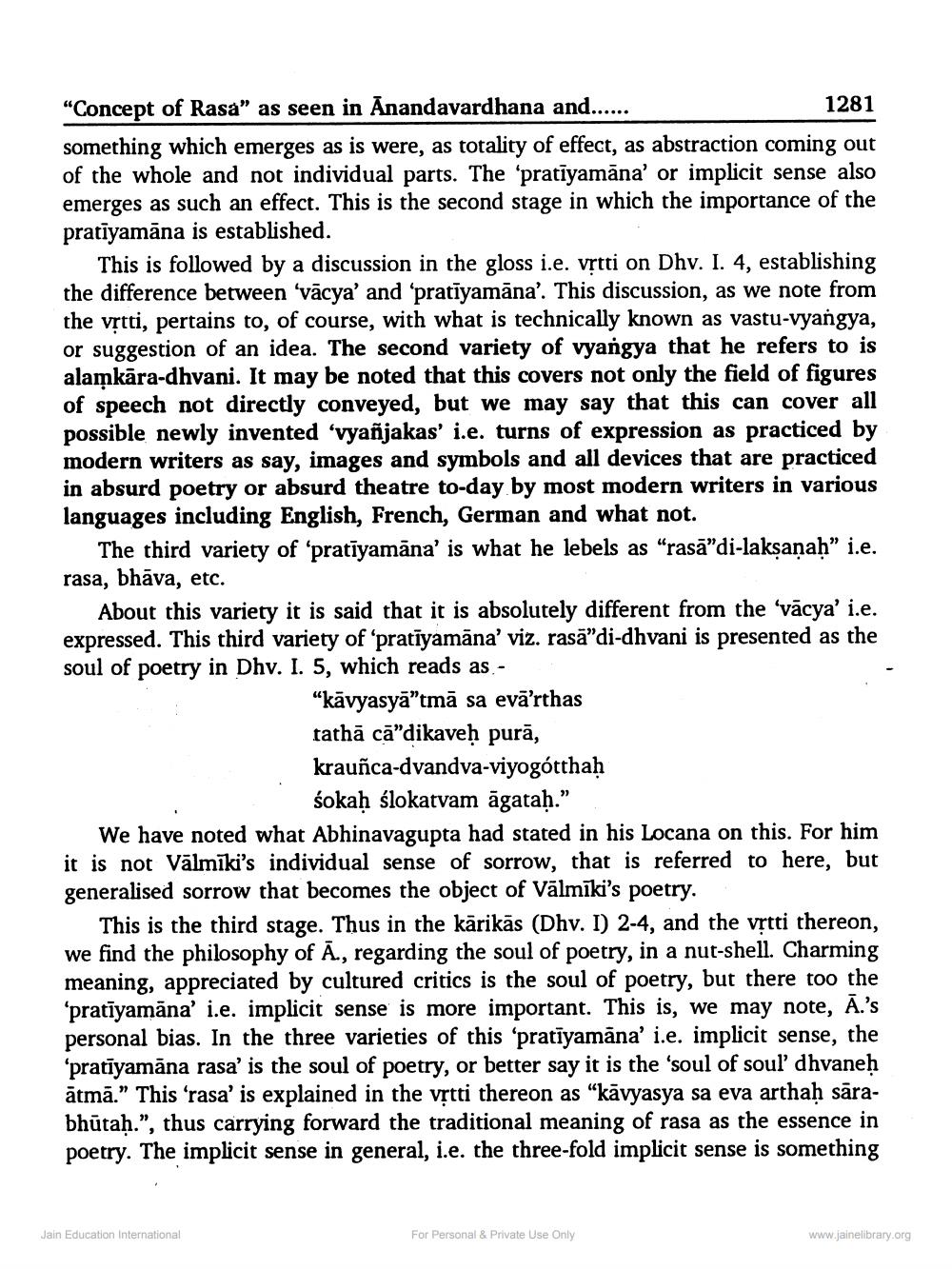________________
"Concept of Rasa” as seen in Anandavardhana and......
1281 something which emerges as is were, as totality of effect, as abstraction coming out of the whole and not individual parts. The 'pratīyamāna' or implicit sense also emerges as such an effect. This is the second stage in which the importance of the pratiyamāna is established.
This is followed by a discussion in the gloss i.e. vrtti on Dhv. I. 4, establishing the difference between 'vācya' and 'pratīyamāna'. This discussion, as we note from the vrtti, pertains to, of course, with what is technically known as vastu-vyañgya, or suggestion of an idea. The second variety of vyangya that he refers to is alamkāra-dhvani. It may be noted that this covers not only the field of figures of speech not directly conveyed, but we may say that this can cover all possible newly invented ‘vyañjakas' i.e. turns of expression as practiced by modern writers as say, images and symbols and all devices that are practiced in absurd poetry or absurd theatre to-day by most modern writers in various languages including English, French, German and what not.
The third variety of 'pratīyamāna' is what he lebels as "rasā”di-laksanah” i.e. rasa, bhāva, etc.
About this variety it is said that it is absolutely different from the 'vācya' i.e. expressed. This third variety of 'pratīyamāna' viz. rasā"di-dhvani is presented as the soul of poetry in Dhv. I. 5, which reads as -
“kāvyasyā”tmā sa evā’rthas tathā cā”dikaveḥ purā, krauñca-dvandva-viyogótthaḥ
śokaḥ ślokatvam āgataḥ.” We have noted what Abhinavagupta had stated in his Locana on this. For him it is not Vālmīki's individual sense of sorrow, that is referred to here, but generalised sorrow that becomes the object of Vālmīki's poetry.
This is the third stage. Thus in the kārikās (Dhv. I) 2-4, and the vrtti thereon, we find the philosophy of Ā., regarding the soul of poetry, in a nut-shell. Charming meaning, appreciated by cultured critics is the soul of poetry, but there too the 'pratiyamāna' i.e. implicit sense is more important. This is, we may note, A.'s personal bias. In the three varieties of this ‘pratīyamāna' i.e. implicit sense, the 'pratīyamāna rasa' is the soul of poetry, or better say it is the 'soul of soul' dhvaneh ātmā.” This ‘rasa' is explained in the vrtti thereon as "kāvyasya sa eva arthaḥ sārabhūtah.”, thus carrying forward the traditional meaning of rasa as the essence in poetry. The implicit sense in general, i.e. the three-fold implicit sense is something
Jain Education International
For Personal & Private Use Only
www.jainelibrary.org




